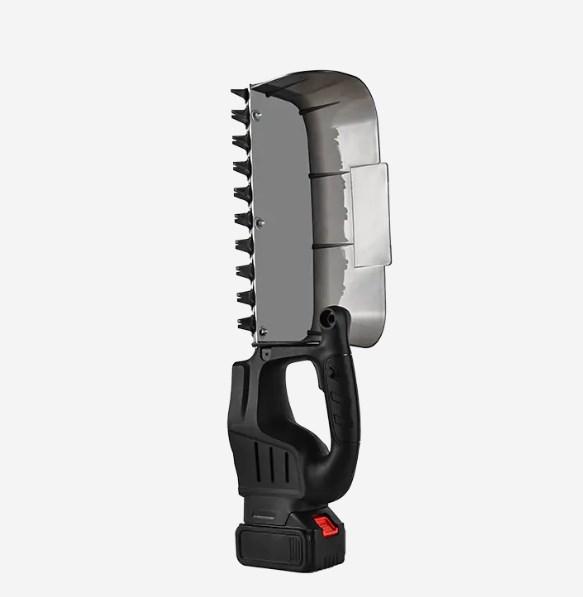Lithium battery garden tools have become increasingly popular in recent years, offering a cordless alternative to traditional gas-powered and corded electric equipment. The shift towards lithium-ion technology in garden tools is driven by several factors, including the need for lighter, more efficient, and environmentally friendly options. However, one of the critical concerns for consumers is the lifespan of these tools and whether they can stand the test of time to fulfill long-term gardening needs.
The longevity of lithium battery garden tools is influenced by several factors, including the quality of the lithium-ion batteries, the design of the tools, and the maintenance provided by the user. High-quality lithium-ion batteries are known for their high energy density, which translates to longer run times between charges. They also have a low self-discharge rate, meaning they can be stored for longer periods without significant loss of charge. This is a significant advantage over older battery technologies, which could lose a substantial amount of their charge if not used regularly.
Manufacturers of lithium battery garden tools are constantly innovating to improve battery life and overall tool performance. Many are now offering tools with batteries that can last for several years under normal use, which is a considerable improvement from the early days of lithium-ion technology. Additionally, advancements in battery management systems have led to more efficient power usage and longer battery life.
Another factor that contributes to the long-term usability of lithium battery garden tools is their design. Many of these tools are designed to be compact, lightweight, and easy to handle, which reduces the physical strain on the user and allows for more extended periods of use without fatigue. This ergonomic design not only enhances the user experience but also means that the tools are less likely to be damaged due to user error, thus contributing to their longevity.
User maintenance also plays a crucial role in the lifespan of lithium battery garden tools. Proper care includes charging the batteries according to the manufacturer's instructions, storing the tools in a dry and cool place, and cleaning them regularly to prevent dirt and debris from causing damage. Users who follow these guidelines can expect their lithium battery garden tools to serve them well for many years.
In terms of meeting long-term user needs, lithium battery garden tools offer several advantages. They are generally more cost-effective over time, as they do not require the ongoing fuel costs associated with gas-powered tools. Additionally, they produce less noise and emissions, making them more suitable for use in residential areas and for environmentally conscious users.
Moreover, the versatility of lithium battery garden tools is another factor that supports their long-term appeal. Many users find that a single set of lithium battery-powered tools can replace a variety of corded and gas-powered equipment, simplifying their tool collection and reducing storage space requirements.
In conclusion, lithium battery garden tools are designed with the user's long-term needs in mind. With high-quality lithium-ion batteries, innovative designs, and proper user maintenance, these tools can provide reliable performance for years. They offer a sustainable and efficient solution for gardening tasks, making them a worthwhile investment for users seeking a long-lasting and eco-friendly gardening experience. As technology continues to advance, it is expected that the lifespan and performance of lithium battery garden tools will only improve, further satisfying the needs of users for many years to come.

